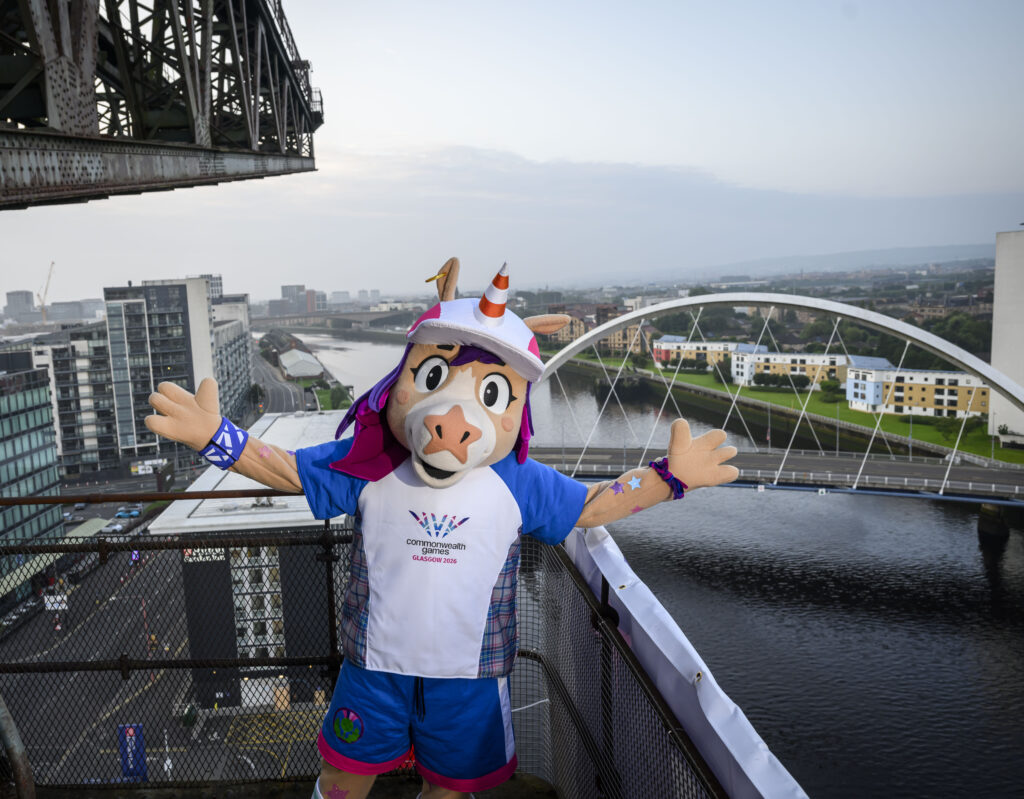Repositioned a controversial Games through cultural storytelling, community ownership, and strategic mascot launch

The Numbers
- 39% positive sentiment shift post-launch
- Major surge in volunteer & ticket enquiries
- Waitlist opened for merchandise due to overwhelming demand
- National & international press coverage on launch day
The Brief
With one year until Glasgow 2026, build anticipation and drive ticket sales for a Games awarded under controversial circumstances – repositioning local skepticism into community pride and securing the social license needed for volunteer recruitment and spectator energy.
The Challenge
Hostile local sentiment. Glasgow residents questioned resource allocation given homelessness, city decline, and cost-of-living pressures. Many viewed the Games as a “vanity project” or opportunity cost, particularly as taxpayers were assured of no financial burden.
“Hand-me-down Games” perception. After Victoria withdrew, Glasgow inherited a scaled-back event (10 sports vs. full programme). This felt like Australia’s failed Games relocated, not Glasgow’s own moment. Sports insiders criticized it as diluting prestige and setting uncomfortable precedent.
Missing the “why now, why us” story. Without clear local ownership, we risked low volunteer sign-ups, poor ticket sales, and weak community activation – all critical for delivering a successful Games on a constrained budget.
The Strategic Approach
Applied my signature framework series with emphasis on emotional connection:
- Fan Formula focused on “Feel It” stage – building pride before action
- 4S Framework weighted heavily toward “Smile” (joy, accessibility) and “Support” (community ownership)
- Fire Formula built momentum through cultural symbols leading to ticket launch
The strategy: Make it unmistakably Scottish, personally relevant, and community-owned.
Rather than defensively addressing criticism, we led with positive emotional storytelling anchored in Scottish identity and grassroots participation.
The Execution
Phase 1: Cultural Anchoring – The Tartan
Commissioned designer Siobhan McKenzie (previous Games involvement, Team Scotland tartan) to create official Glasgow 2026 tartan. Design embedded meaning: grey base for industrial heritage, blue/pink/purple Games colors, 74 grey threads for 74 nations, 26 blue threads for 2026.
Strategic purpose: Made the event feel distinctly Scottish (not Australian), created premium merchandise opportunity, offered local manufacturing partnerships, and provided content-rich storytelling with lasting symbolic value.
Phase 2: Mascot as Community Ambassador – Finnie
Co-created mascot with schoolchildren across Glasgow – a unicorn (Scotland’s national animal) with traffic-cone horn (iconic Glasgow symbol). Named Finnie by the children.
Strategic purpose:
- Made Games feel owned by Glaswegians, not imposed on them
- Engaged families and young audiences as brand ambassadors
- Created friendly, accessible face for the event vs. political/financial controversy
- Addressed “our Games” vs. “their Games” tension through genuine co-creation
Phase 3: One Year To Go – Multi-Touchpoint Launch
Coordinated integrated launch across stakeholders:
- 7am: Finnie unveiled atop Finnieston Crane, covered by morning news
- 10am: Press conference with CGF and Scottish Government senior figures
- Midday: Private celebration with designer children and families (Finnie made friendship bracelets, met his creators)
- Afternoon: Public activation – Finnie raced Eilish McColgan, played basketball with Kieron Achara MBE, photos with families
- Seeded influencer content to amplify reach
Strategic purpose: Created news cycle dominance, generated earned media, delivered exclusive access for stakeholders, and provided public interaction opportunities – all reinforcing “Glasgow’s Games” narrative.
The Impact
Sentiment Transformation
- 39% positive sentiment shift following TYTG event
- Shifted conversation from “why are we doing this?” to “how can we be part of it?”
- Acknowledged resistance remained (trolls questioned crane spending), but successfully moved majority perception
Commercial & Community Response
- Major increase in volunteer enquiries post-event
- Significant surge in ticket interest ahead of sales launch
- Merchandise demand so high a Finnie plush waitlist was required
- Strong press and community pick-up on mascot reveal
Narrative Reframing
- Successfully repositioned from “Australia’s failed Games” to “Glasgow 2026”
- Embedded social license through grassroots participation
- Created accessible entry point for skeptical audiences through mascot/cultural storytelling
Key Capability Demonstrated
Crisis repositioning through positive narrative and community ownership – turning political controversy into cultural pride by leading with emotion, co-creation, and Scottish identity rather than defending the decision.